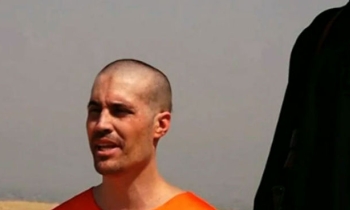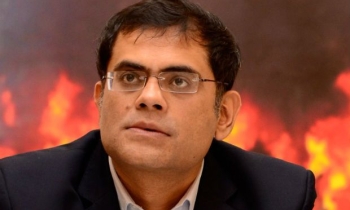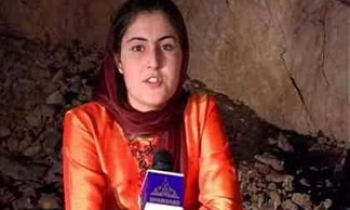A fierce public debate about journalistic ethics has begun in Iceland after a newspaper reported that a former school teacher was being investigated for sexually abusing two boys, and the man committed suicide.
Two senior editors at DV, Iceland’s fourth-largest daily newspaper, have resigned, and more than 10% of Iceland’s population of 300,000 people has signed an online petition demanding that the paper review its editorial policies.
The intensity of the nation’s response reflects a discomfort among some Icelanders with the newspaper’s approach in a small island nation that values privacy.
"People in Iceland rose up and said, We don’t want this. We don’t want this paper. We don’t want these ethics,"’ said Arna Schram, chairwoman of the Icelandic Journalists Union.
Last week, DV ran a cover story about former teacher Gisli Hjartarson, alleging that he was being investigated for sexually abusing two boys.
The same day, Hjartarson, 58, who had not been formally charged, killed himself at his home in the small town of Isafjordur, northern Iceland.
The victim’s brother, Sigurdur Hjartarson, told the media that the former teacher had left behind a letter saying he could not cope with the media attention he believed he would receive.
Police in Isafjordur have declined to discuss Hjartarson’s death or to confirm that he was under investigation.
Iceland police generally do not report or comment on suicides.
The victim’s family declined to be interviewed, but confirmed media reports that Hjartarson had committed suicide.
DV was the only media outlet to report about Hjartarson’s alleged offences before his death.
The decision by DV, owned by print and television conglomerate 365, to name and write about Hjartarson and put his photograph on the front page set off Iceland’s biggest public debate about tabloid-style journalism, and DV’s in particular.
"The event that caused the petition was only the last straw," said Drifa Kristin Sigurdardottir, an editor of Deiglan, the human rights-oriented website that posted the petition signed by more than 32,000 residents.
She claimed it was not the first time that DV had engaged in reckless or inaccurate journalism that has hurt or offended Icelanders.
DV defended its decision last week, saying the motivation to publish the man’s name and photograph was in the interest of alleged victims.
But as criticism of the paper intensified, editors Jonas Kristjansson and Mikael Torfason resigned from DV in what they called an effort to "re-establish the peace" for their newsroom and colleagues. Two new editors have been hired in their place.
One of the two new senior editors, Bjorgvin Gudmundsson, said in an interview today that the paper would be more cautious in the future.
"The policy is that we are going to publish names and pictures like the previous editors did, but we are going to be more careful about it ... and wait a little bit longer to see where the case is if the person has been charged in a criminal case," Gudmundsson said.
Prominent members of the Icelandic government and business community voiced objections to the newspaper’s practice of printing the names and photographs of private citizens without their permission, including criminal suspects who had not been charged or tried.
Icelandic investment company Baugur Group is the largest shareholder in 365s parent company, Dagsbrun.
There was no indication that DV would be formally challenged for its treatment of the former teacher.
However, some Icelanders have said the newspaper’s former editorial leadership broke with the long-standing tradition of Icelandic journalists to respect people’s privacy, according to parliamentarian Hjalmar Arnarson, who is chairman of the Progressive Party.
"They broke unwritten rules," Arnarson said.
The events also prompted legislator Sigurdur Kari Kristjansson to draft a bill calling for better legal protection for family members of libel or slander victims, and for larger fines for people convicted of libel or slander.









